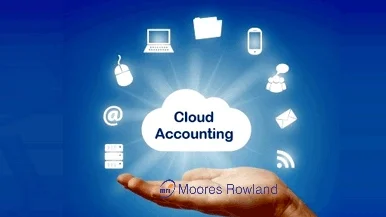What you need to know about accounting for cloud computing
Businesses that enter into cloud computing arrangements have to consider the acceptable accounting treatment for the prices incurred.
•
June 30, 2021

Businesses that enter into cloud computing arrangements have to consider the acceptable accounting treatment for the prices incurred.
Cloud computing has become increasingly popular in recent years as companies have explored efficient and secure ways to store, manage and process their data.
This type of arrangement is predicated on remote server networks, usually accessed over the web, with service models encompassing infrastructure, platforms, and software. The customer accesses and uses the software on an as-needed basis.
Transitioning to the cloud or implementing a replacement cloud computing arrangement can involve high costs for companies, and there are implications on how to account for these costs.
Accounting standards don't, however, provide explicit guidance on this. Businesses must use judgment and apply various IFRS standards, including IFRS 16 Leases and IAS 38 Intangible Assets.
Businesses stepping into these cloud computing arrangements must understand whether this is a purchase of an intangible, a right of use, or a contract to receive services. The financial reporting implications are significantly different betting on the solution. When the IFRS Interpretations Committee was asked, they guided to make the excellence.
Related

AI Prompt Writing: The Basics for Professional Accountants
From automating routine tasks to supporting advanced analysis and advisory services, AI tools are becoming an everyday reality for professional accountants—especially those working in small- and ...
Read more
The Future of Accounting and Tax: How AI, Automation, and Regulation Are Reshaping the Profession (2025–2026)
Introduction The accounting and tax profession is undergoing one of the most significant transformations in its history. Artificial intelligence, automation, evolving regulatory frameworks, an...
Read more